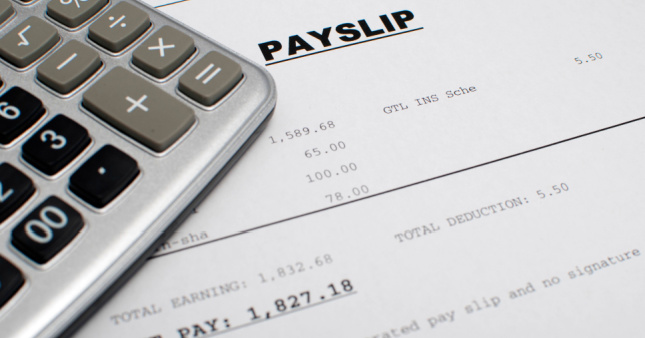
A pay slip is a document that an employer gives to an employee at the end of each pay cycle. A pay slip gives the employee a breakdown of important pay-related information, such as their total wages earned, as well as any income tax deducted, overtime, holiday pay, bonuses, or commissions.
Do employers have to give pay slips?
As an Australian employer, you may ask yourself whether you need to give your employees a pay slip.
It is a legal requirement in Australia for employers to supply employees with pay slips. As an employer, it’s vital to ensure all the information given in pay slips is up to date and accurate, which can help avoid any pay disputes with your employees.
What information should be in an employee’s pay slip?
There are several important pieces of information that every employee’s pay slip should cover as prescribed by the Fair Work Act 2009 and the Fair Work Regulations 2009.
A pay slip must include all of the following:
The employer's name.
The employer's ABN (if any).
The employee's name.
The date of payment.
The pay period.
The gross and net amount of payment.
Any loadings (including casual loading), monetary allowances, bonuses, incentive-based payments, penalty rates, or other separately identifiable entitlement paid. For example, a note could be included on a pay slip that the hourly rate incorporates the relevant casual loading.
Additionally, where relevant, a pay slip must include any of the following:
If the employee is paid an hourly pay rate, the ordinary hourly pay rate and the number of hours worked at that rate and the amount of payment made at that rate.
If the employee is paid an annual rate of pay (salary), the rate as at the last day in the pay period.
Any deductions made, including the name, or the name and number, of the fund or the account of each deduction.
If the employer is required to make Superannuation contributions for the benefit of the employee:
The amount of each contribution the employer made or intends to make during the pay period.
The name, or name and number, of any super fund into which the contributions were made or will be made.
However, when an employer needs to give a new employee a pay slip within 14 days of their first pay day, they don’t have to include the super fund name or number if:
The employee hasn’t notified the employer of their choice of super fund.
The employer hasn’t been able to obtain the employee’s stapled super fund details from the Australian Taxation Office (ATO).

Wage And Pay
Paying wages is important to employees and can be complicated for employers. Employees have a right to know how much they will be paid, how often, and how they will be paid, for example, into their bank account. This is usually set out in the contract of employment or employee handbook.
How and when should pay slips be given?
Pay slips can be issued as a hard copy (on paper), electronically (email), or both. With most companies supporting sustainability, it’s common to supply pay slips electronically via an email or through your company’s HR platform.
Pay slips contain sensitive information, so in the interests of maintaining data privacy it’s important to ensure paper copies of pay slips and any financial data are securely stored throughout the payroll process.
Pay slips must be given to an employee within 1 working day of pay day, even if an employee is on leave.
How should employers create and format pay slips?
In terms of the format and layout of the information in your pay slips, the order shown above as advised by the Fair Work Ombudsman as outlined above should work perfectly.
Rather than calculating pay slips manually with Excel, there are a range of software solutions that allow you to easily automate the process.
Pay slip generators offer customisable templates, which the software’s AI then populates with information based on an employee’s unique payroll data.
How do pay slips help the payroll process?
Creating pay slips with all the critical information can help your payroll staff with record keeping, ensuring they have accurate and complete data for each pay cycle.
Pay slips also ensure employees receive the correct pay and entitlements.
Do employees have a right to ask for pay slip information?
If your employees’ pay slips don’t have enough information, they have a right to ask you to provide the things they want to know.
In this case, you’re obligated to supply any records they request related to hours worked, wages, holiday, leave balances, taxes, commissions, and superannuation payments.
If there is anything about the information you supply that they don’t understand, you must explain it when an employee asks.
Frequently Asked Questions
Should pay slips cover superannuation?
In most cases an employer is required to pay superannuation. If eligible, the super guarantee applies to all types of employees, including:
-
Full-time employees.
-
Part-time employees.
-
Casual employees.
-
Temporary residents are also eligible for super.
The record must include:
-
The amount of the contributions made.
-
The dates on which each contribution was made.
-
The period over which the contributions were made.
-
The name of any fund to which a contribution was made.
-
The basis on which the employer became liable to make the contribution, including a record of any election made by the employee (including the date) to have their super contributions paid into a particular fund.
Pay slips should show all deductions you have taken from your employee’s gross salary, including for superannuation. You should also give information about any employer contributions to your employee’s chosen superannuation fund.
Can I recover overpayments?
If you accidentally overpay an employee because of a payroll error or you mistakenly believed an employee was entitled to the pay you should discuss and agree on a repayment arrangement.
If the employee agrees to repay the money, a written agreement should be made which sets out the:
-
Reason for the overpayment.
-
Amount of money overpaid.
-
How repayments will be made (cash, cheque, electronic transfer) and how often (this must be reasonable).
If as an employer you’re unable to agree to a repayment, you should get legal advice.
If you’re an Australian business owner with questions about wages and pay, you can contact Employsure 24/7 for free initial advice on 1300 651 415.


